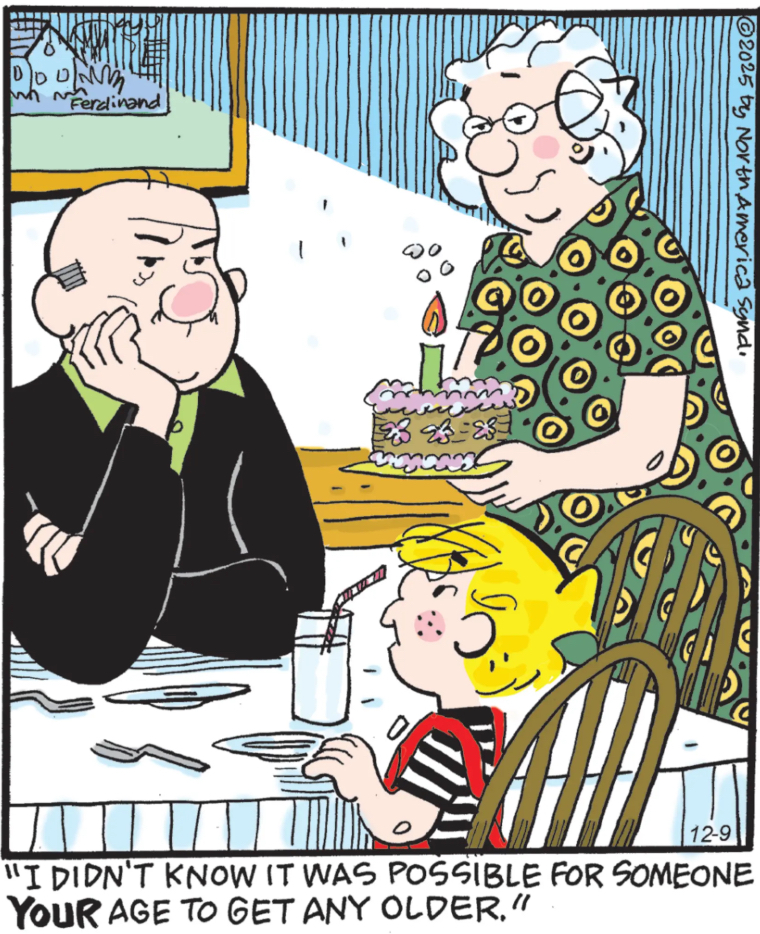That bird is pure evil and I love it
Post Content
Mary Worth, 12/11/25

Sorry to be a killjoy, but I’m deeply concerned that Ian appears to own the exact same robe that Wilbur does. Yes, they’re different colors, but we all know the coloring in the daily strips is done by the syndicate and isn’t canon. At first I thought that this was simply clip art of Ian’s head put onto an existing drawing of Wilbur’s body, but I’m reasonably sure we never had the opportunity to look at a berobèd Wilbur from this angle, given that the pet he had a weird emotional relationship with floated around at eye level most of the time. Anyway, this just raises a lot of questions, like is there a standard-issue Charterstone robe that all male inhabitants are assigned upon arrival? Troubling. Still, I don’t mean to take away from the main event, which is that Toby is shrieking “Don’t be ridiculous! Birds can’t read!” and somehow she’s the voice of reason in this conversation. That part’s good.
Wizard of Id, 12/11/25

Is this really the sort of thing that works for politicians? I think of their classic move as being more along the lines of “I tell people something good will happen. Then, when it doesn’t, I say it did, actually, and moreover I’m responsible for it.” I guess I don’t live in a pseudo-medieval kingdom ruled by a hereditary monarch working in tandem with a chaotic wizard, though, so maybe I’m operating out of context here.







